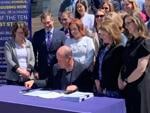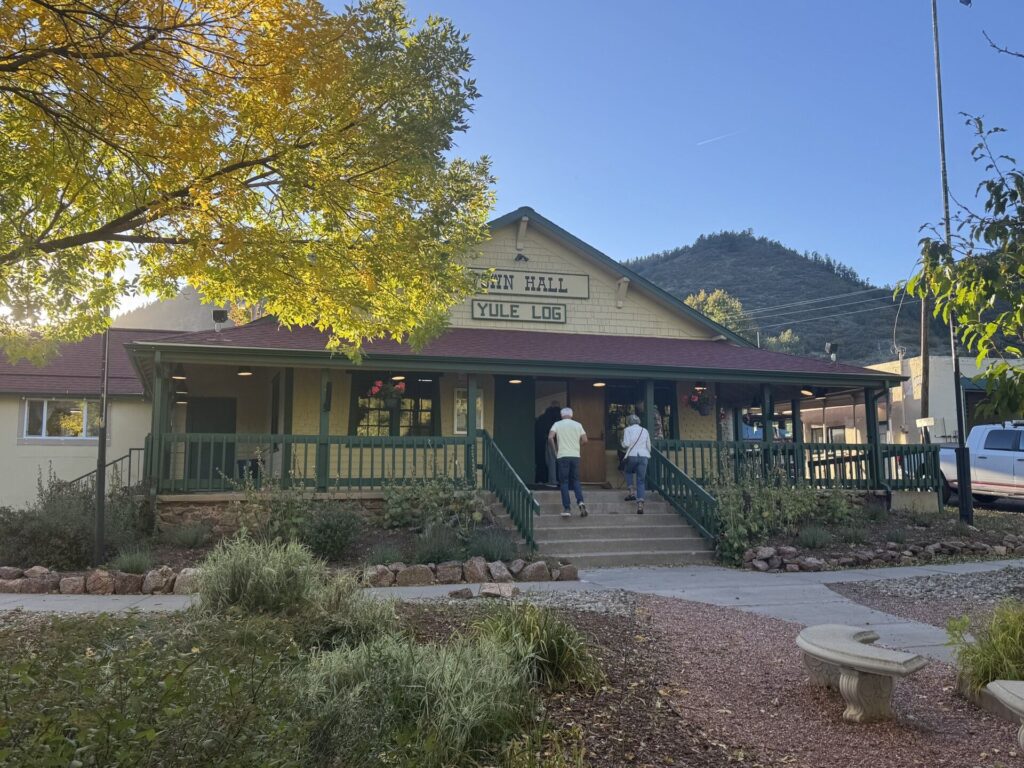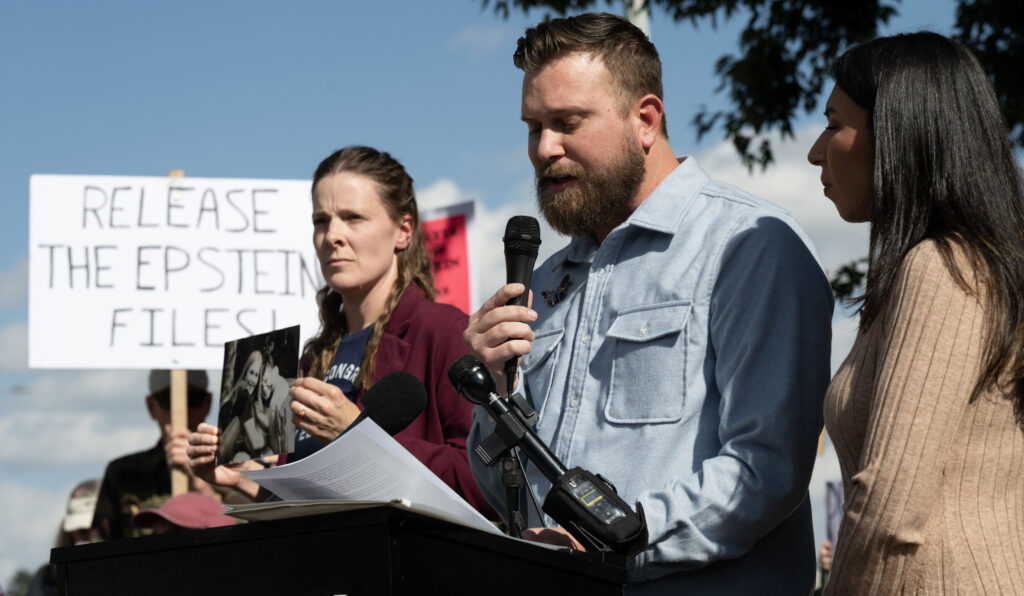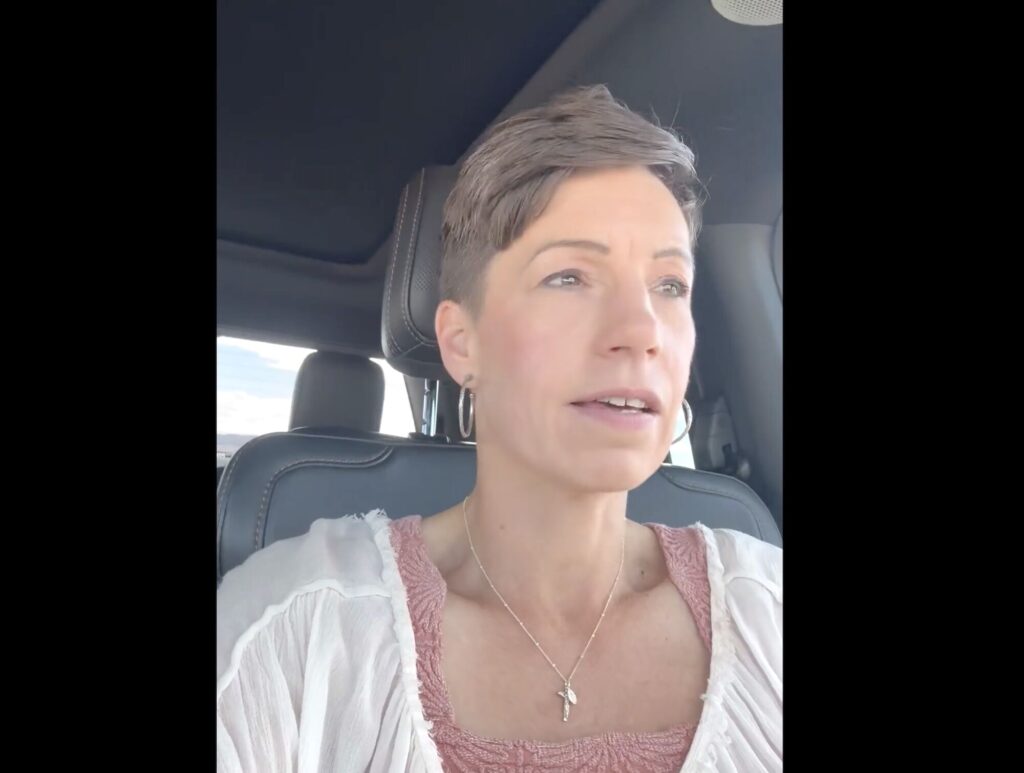How Democrats’ failure at the ballot box led to bipartisan successes in the Colorado legislature
The seeds of the bipartisan cooperation that yielded major policy successes — notably in taxation — this year began in a major failure last year.
Several lawmakers on both sides of the aisle pointed to the failure of Proposition HH, the property tax measure that voters rejected by 20 percentage points last year, as leaving Democrats stinging from the defeat and Republicans chomping at the bit to figure out something else.
Democrats and Republicans alike worried about soaring home valuations — with some counties reporting increases as high as 60%, although that isn’t necessarily how much the property taxes will go up — and how, without their action, it would hammer Colorado residents hard.
A special session on property taxes followed just weeks later, and while Republicans didn’t sign onto any of the Democratic solutions to the skyrocketing property taxes, the seeds of bipartisanship had been planted.
Those seeds bloomed in this year’s session, when lawmakers introduced a total of 705 bills and the Senate and House chambers passed more than 500 measures for Gov. Jared Polis to sign into law.
Over time, support for bills have followed a familiar arc. Observers noted that most bills, some 80% or more, often receive bipartisan sponsorship. Indeed, Republican bills almost always have a Democratic co-sponsor to give them the best opportunity to advance.
But as Senate President Steve Fenberg recently said in an interview with reporters, it is uncommon to see significant policy issues, such as the final bill introduced in the 2024 session on property taxes, getting solid bipartisan support.
And the majority party almost always controls a measure’s outcome on those major policy issues, such as property taxes, TABOR, guns, housing, energy, transportation and water.
While Democrats still maintain control to this day, it changed in a more significant way than what might have seemed possible during the 2024 session.
A property tax solution that doesn’t touch TABOR
That change was most notable in House Bill 23B-1003, which set up a property tax commission tasked with looking for a long-term fix.
As introduced, the 11-member task force included six lawmakers from the House and Senate, with Democrats picking four of the six, plus the state property tax administrator, a county assessor, and representatives of Colorado Counties Inc. and the Colorado Municipal League.
What was left out stood out to the more than half-dozen lawmakers who had previous experience serving on local governments — the lack of representation from county commissioners or city officials, all of whom, they pointed out, actually deal with property tax issues.
The bill’s final version, worked out in a compromise crafted by Democratic Sen. Kyle Mullica of Northglenn and Republican Sen. Byron Pelton of Sterling, came up with a 19-member group — an administrator; an assessor; four lawmakers, two from each chamber and from each party, so no one party dominated; and, significantly, a mayor and five county commissioners, as well as seven representatives of business, special districts and other interests.
While Republicans didn’t vote in favor of any property tax measures from the special session, including the commission’s creation, another behind-the-scenes push was coming into the 2024 session.
Democrats agreed not to use Taxpayer’s Bill of Rights dollars to provide property tax relief, which was the GOP’s major sticking point with Proposition HH and critics’ major argument on why voters should reject the ballot measure.
Proposition HH asked voters whether to use TABOR surplus revenue — which is usually refunded to taxpayers — to reduce property tax increases, fund school districts and backfill counties, water districts, fire districts, ambulance or hospital districts and other local governments. And voters said no.
House Speaker Julie McCluskie, D-Dillon, told Colorado Politics in March that Democrats listened.
While disappointed that the primary property tax relief bill failed to gain GOP support, “our demonstration of good faith mattered,” she said.
That set the stage for the possibility of bipartisan work on significant policy issues in 2024.
What bipartisanship looks like

Gov. Jared Polis and a bipartisan group of lawmakers announce deal on property taxes in the closing days of the 2024 legislative session.
A deal on TABOR may have been even more striking than the bipartisan agreement on property taxes.
The Taxpayer’s Bill of Rights is often viewed as the third rail of politics — something no one wants to touch with a 10-foot pole.
This year, lawmakers ventured to go there with a compromise between the two parties on a new TABOR refund mechanism that included an income tax rate reduction.
Polis and Republican lawmakers have both sought income tax rate reductions for years. The governor’s most consistent request of the legislature every January during his State of the State address is exactly this — and Republicans have offered bills to do just that.
But Democrats have been a hard “no.”
That changed just nine days before the session ended with Senate Bill 228, which resurrected the temporary state income tax rate cut, reducing rates from 4.4% to 4.25%. It created a new refund mechanism to temporarily reduce state sales and use taxes, starting with the 2024-25 TABOR surplus.
Republicans got their income tax rate reduction, albeit a temporary one that will vary depending on the amount of the TABOR surplus, while Democrats got something not in the bill — the governor’s OK on measures that tap the TABOR surplus for programs to benefit low-income families and workers.
The governor signed the TABOR refund and property tax bills on May 14.
Here’s a synopsis of the significant policy issues of the 2024 session.
Tax credits
More than 50 bills were introduced in the 2024 session that sought to create tax credits, paid for with the TABOR surplus.
The largest, House Bill 1311, sponsored by Speaker Pro tem Rep. Chris deGruy Kennedy, D-Lakewood, takes $327 million from the 2023-24 surplus (paid in 2025) and $684 million in 2024-25 (paid in 2026).
That’s from a TABOR surplus estimated at around $2 billion for the next few years.
Several measures also tapped the TABOR surplus to address housing issues.
The TABOR surplus is the source of funding for House Bill 1434, a bipartisan bill that increases affordable housing tax credits issued by the Colorado Housing and Finance Authority and creates a new state income tax credit for taxpayers who invest in qualified low-income housing projects located in a transit-oriented community. The cost is $6.3 million in 2024-25 but grows to $48 million next year and up to $146 million in later years.
Another housing tax credit is in House Bill 1316, a middle-income tax credit for renters. It will cost $400,000 from the TABOR surplus in 2024-25 but can increase to $37 million in later years.
Meanwhile, House Bill 1052, which would tap TABOR surplus for $33.8 million, provides a refundable tax credit in 2024 only to seniors who have not taken the senior homestead exemption and whose incomes do not exceed $75,000 or $125,000 if filing jointly.
Workforce tax credits are also awaiting the governor’s approval.
That includes House Bill 1365, which creates the Regional Talent Summit Grant Program and establishes a workforce shortage tax credit at a cost to the TABOR surplus of about $7.3 million in 2025-26.
House Bill 1312 provides a refundable tax credit — that’s a tax credit that could exceed the amount of taxes someone owes and the taxpayer gets that additional money — for care workers, defined as a child care worker, home health-care workers, personal care aide, certified nursing assistant, or other personal care workers, and who can include a family member, friend, and neighbor who provides care.
The TABOR surplus will cover about $43 million in 2025-26 for this credit, but that is substantially less than when the bill was introduced and sought $256.6 million for 2025-26.
Housing

Rep. Richard Holtorf, R-Akron, talks about the 2024 legislation session.
No issue, save for property taxes, divided lawmakers last year as much housing did.
The “omnibus” housing bill in that session, Senate Bill 213, led to a bitter fight from beginning to end.
Local governments pushed back, citing the bill’s attempts to push mandates on zoning, which has been the purview of local governments for decades and is protected by home rule authority in the state constitution. Critics also said the sponsors shut them out, particularly in the House and by the governor. Those critics turned to their allies in the legislature with local government experience to oppose the measure.
Led by Sens. Barbara Kirkmeyer, R-Weld County, and Rachel Zenzinger, D-Arvada, the bill went down to defeat on the session’s last day.
McCluskie said Democrats learned from that.
Sponsors of some of the major housing bills in 2024 met with local government leaders, which she described as effective engagement.
Two measures in the slew of housing bills stood out after gaining bipartisan support: House Bill 1152, which requires local governments to allow accessory dwelling units — granny flats or casitas, for example — in five regions of the state, and Senate Bill 174, which sets aside $15 million in general funds for grants to help local governments with housing needs assessments.
The legislature’s top bipartisan team sponsored the latter bill: Kirkmeyer and Zenzinger, who have worked together on the Joint Budget Committee for the last two sessions.
The former, signed on May 13, was a collaboration between Reps. Judy Amabile, D-Boulder, and Ron Weinberg, R-Loveland.
The governor also signed into law the session’s biggest housing legislation — House Bill 1313, which mandates 31 municipalities in five regional metropolitan planning groups to come up with higher-density housing adjacent to transit routes.
Under a bill signed in April, renters could have more protection against evictions. House Bill 1098 requires landlords to provide cause for an eviction, with certain exceptions, such as nonpayment of rent, damage to the property, or a decision by the landlord to put the property up for sale.
What did not make it to the finish line was legislation on “construction defects.” Two competing and very different perspectives on the issue of condo liability both died in the session’s final days, but some versions of both are likely to be back in 2025.
The rarest of the rare — a bipartisan bill on guns
Even on an issue as divisive as guns, one bill earned bipartisan backing.
House Bill 1162 died in its only House committee hearing in February and would have raised the penalty for stealing a firearm from a motor vehicle.
It was the rarest of the rare — a bipartisan bill, sponsored by Reps. Ryan Armagost, R-Berthoud, and Marc Snyder, D-Manitou Springs.
It briefly resurfaced during the last days as part of a bitter fight over a bill on safe storage of firearms. The Senate amended that penalty provision to House Bill 1348, and two conference committees later, it was removed. Gov. Jared Polis signed HB 1348 on May 15, along with SB 3, allowing the Colorado Bureau of Investigation to investigate illegal firearms.
Bills pushed through by majority Democrats on the issue of guns included the following:
• House Bill 1353, which requires firearms dealers to obtain a state license
• House Bill 1349, which imposes an excise tax on firearms and requires voter approval in November
• Senate Bill 131, which bans firearms in polling locations, schools, and government buildings, including a prohibition on lawmakers bringing firearms into the state Capitol.
All are awaiting the governor’s signature.
What did not make it to the finish line was the second attempt at banning so-called “assault weapons.” Although House Bill 1292 made it out of the House, it failed in the Senate at its sponsor’s request.
Budget

Gov. Jared Polis, surrounded by members of the Joint Budget Committee, JBC staff and cabinet officials, signs into law the state’s $40.6 billion budget for 2024-25. That budget had included $2 billion more in spending.
Lawmakers approved the state’s 2024-25 budget, their only constitution requirement, in April and the governor signed the new spending plan on April 29.
At $40.6 billion, it is $2 billion more than in 2023-24 due to increased Medicaid costs within the Department of Health Care Policy and Financing. It sets college tuition increases at 3% for resident students and 4% for out-of-state students. It also provides $139.4 million in general fund support for higher education, including $13 million more for financial aid, mostly in need-based grants.
It was a tight budget year, which meant the death of several tax credits legislation.
School finance

Colorado schools will see budget increases, as lawmakers pass a measure to free up more funds.
Lawmakers said one the most significant accomplishments of the 2024 legislature is finally paying off the 15-year “debt” to K-12 education, known first as the negative factor and later as the budget stabilization factor.
The school finance act put to bed the last payment of around $146 million, an obligation that reached $1.1 billion just four years ago during the height of the pandemic.
School advocates maintained that that even with the BS factor paid off, school funding remains at 1989 levels, arguing schools have lost some $10 billion since 2009.
Just as notably, lawmakers passed a bipartisan rewrite of the school finance formula that has not been touched in 30 years.
The measure drives money toward low-income students, English language learners, or special education services, although suburban school districts complained they would lose funding. The sponsors, which included McCluskie, added a minimum of funding for all school districts for the bill’s first six years, estimated to cost $500 million.
What did not make it to the finish line was House Bill 1363, which sought to modify the composition of charter school boards, prohibit automatic waivers, and give the local school district the final say on a charter school application. That measure died in the House Education Committee after intense lobbying from the charter school community.
Death, drugs and towing
Colorado will lose its distinction as the only state in the country that does not regulate funeral home personnel after lawmakers passed two bills to put the industry and its employees under more state oversight. That comes in the wake of several scandals in the sector over funeral home owners who abandoned corpses or cremains, or sold body parts without the family’s consent.
The towing industry is also facing increased oversight, with the passage of House Bill 1051 in the session’s waning days. The bill creates new regulations for towing carriers, such as prohibiting towing operators from patrolling properties and requiring property owners, instead of the vehicle owner, to pay the cost of the tow under certain circumstances.
What did not make it to the finish line was the second attempt to allow local governments to operate sites where people can ingest or inject illegal drugs under the supervision of medical professionals.











